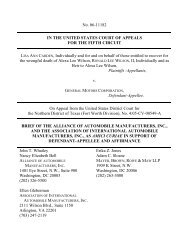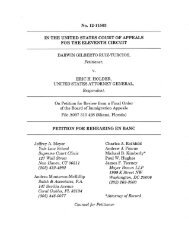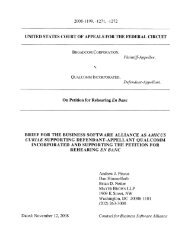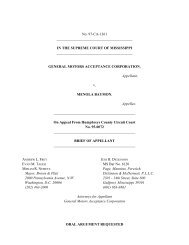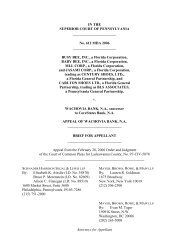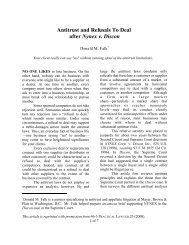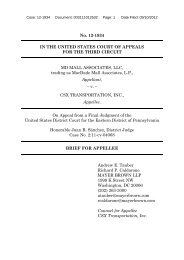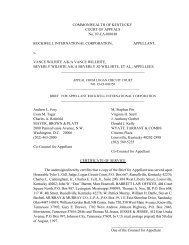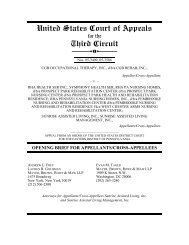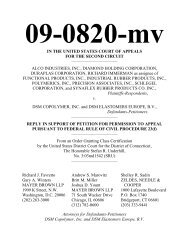No. 5-99-0830 IN THE APPELLATE COURT OF ... - Appellate.net
No. 5-99-0830 IN THE APPELLATE COURT OF ... - Appellate.net
No. 5-99-0830 IN THE APPELLATE COURT OF ... - Appellate.net
You also want an ePaper? Increase the reach of your titles
YUMPU automatically turns print PDFs into web optimized ePapers that Google loves.
introduce testimony from consumer advocates who would have explained that the<br />
specification of non-OEM parts is a pro-consumer practice that makes repairs less costly and<br />
prevents the car companies from charging the kinds of monopoly prices for repair parts they<br />
used to charge before the non-OEM market developed. See, e.g., R. 10109-11. <strong>No</strong>r was<br />
State Farm allowed to explain to the jury that it is a mutual company, owned by its<br />
policyholders, and therefore was motivated only by a desire to protect its policyholders —<br />
and not by the need to generate profits for shareholders. C. 28988.<br />
Whatever the merits of these rulings may have been before the trial began, it was a<br />
clear abuse of discretion for the circuit court to continue to adhere to them once plaintiffs<br />
stood up in opening argument and started throwing mud at State Farm. Plaintiffs accused<br />
State Farm of foisting non-OEM parts on “vulnerable” “minorities,” such as “blacks,<br />
Hispanics, and particularly Vietnamese,” and a “little old lady,” while bestowing OEM parts<br />
on “well-shod” policyholders whose “golfing buddies” might be lawyers. 46/ R. 6007-10,<br />
4507.18, 4441, 13002. Plaintiffs implied that State Farm was cheating policyholders by<br />
providing cheaper parts than class members had paid for and asked the jury to force State<br />
Farm to give up the ill-gotten “money” it had supposedly “made” from this misconduct. R.<br />
13008. Then, in closing argument, plaintiffs urged the jury to speak up for justice, invoking<br />
the specter of “Nazis” herding victims to the gas chamber, while good people failed to<br />
46/<br />
This was not the first time that plaintiffs’ lead trial counsel has made the unfortunate<br />
decision to play the race card in a civil trial. The Mississippi Supreme Court recently<br />
reversed a verdict that Mr. Barrett had obtained in a breach of contract action in part because<br />
of his “obvious effort to inflame the emotions of the jury” by “blatantly play[ing] the ‘race<br />
card’ before the jury.” General Motors Acceptance Corp. v. Baymon, 732 So.2d 262, 271-72<br />
(Miss. 1<strong>99</strong>9).<br />
-102-



